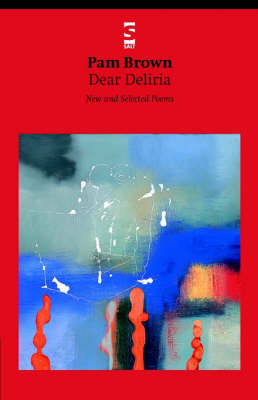Salt Modern Poets
2 total works
True Thoughts follows the success of Pam Brown's last major collection Dear Deliria published in late 2002 and awarded the NSW Premier's Prize for Poetry in 2004.
This new work collects twenty-three poems written between 2002 and 2007 in a period of global instability and military irruption. Even so, this collection of deceptively minimalist poems is anchored in the everyday and moderated by a self-conscious slant to it. The poems move with a clear agency through many realms, both actual and metaphysical. The actual includes sharply delineated streetscapes, imagined havens, distant places, encounters with friends, ideas, history, and a kind of fragmented urbanity. The metaphysical engages multilayered states of being and, sometimes, simple moods.
Brown's writing is deftly ironic, and affects a sense of the ludicrous in the face of mortality, as the poems attempt to fathom the question `how to live?' alongside the larger one `how to live now?'
Winner of the Kenneth Slessor Poetry Prize 2004. Pam Brown’s poems are insomniacs in the sense that Rimbaud might have given the term: they are totally awake at all times. Zero slack, zero fuzz. Just total, delirious, desirous, and indelible attention to the real situations we find ourselves, implausibly but inextricably, thrown into.
Though it is the case that most people hold their own truths to be self-evident and their own deliria to be very dear indeed, it takes a poet of Brown’s caliber to break those narcissistic “holds” and release us into the lucid delights of a consciousness that long ago “lost all interest / in repetition” and set about building its singular sensations into fragilely-poised assemblages held together only but totally by the crazy glue of a bricoleur’s imagination.
Brown’s poetry addresses us with an uncanny intimacy that fast becomes addictive. There is no choosing between her poems, because each one has the air about it of an irreplaceable friend: just the one, in fact, whom you'd find yourself happiest to see at just the occasion the poem simultaneously makes and marks.
Her powers of observation recall James Schuyler at his most crystalline; her line matches William Carlos Williams at his highest and most surprising resolutions; and her stabbing vernacular wit and gift for the well-timed exclamation recalls Frank O’Hara in his giddier – high on translated Mayakovsky – moments.
That her poetry composes itself in such company, and brings Alice Notley, Nina Hagen, Eileen Myles, Patti Smith and others into the semiotic chorus to boot, gives to every page of her writing the kind of accompaniment that an intense café conversation between lovers – concentrated by their desire but not yet alone in it – might have.
A quick wit in love at the thick of things: it’s what we’ve needed from poetry all along, and it’s what we find in Pam Brown’s Dear Deliria.
Steve Evans, University of Maine

